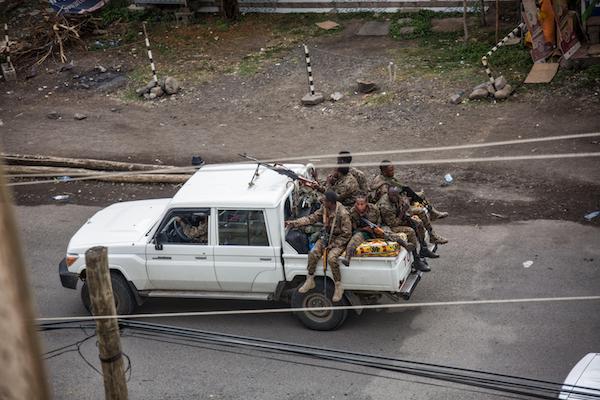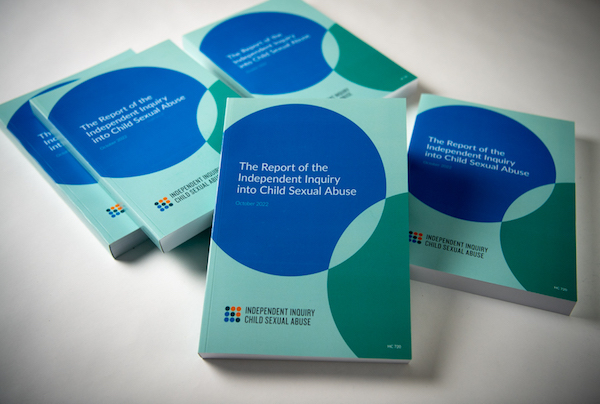The failure to report a disclosure of child sexual abuse should be a criminal offence, a statutory inquiry has said, including disclosures made in the confessional.
The Independent Inquiry into Child Sexual Abuse (IICSA) published its final report today, featuring 20 recommendations “to tackle weaknesses in organisations and practices which have left children vulnerable to abuse, exposed them to harm or denied them access to justice”.
Its three central recommendations call for mandatory reporting of child sexual abuse for those who work in regulated activity or hold a position of trust, a national redress scheme to provide monetary compensation to victim, and the creation of child protection authorities in England and Wales to implement better practices.
Mandatory reporting would create a statutory obligation for individuals in positions of trust to report disclosures or clear evidence of abuse to the police or social services. Failure to do so would be a criminal offence, subject to certain criteria.
“For those who work with children or are in a position of trust to fail to facilitate [the protection of children] is inexcusable, and the sanction for such an omission should be commensurate.”
The IICSA report says that institutions cannot rely on children coming forward to report abuse:
“All institutions involved on a regular basis with children must be proactive and vigilant. If information about known or suspected sexual abuse is held by anyone in the institution, the information must be acted upon and proper investigations must take place, regardless of cultural, religious, educational or societal norms or beliefs. There should be no exceptions to this requirement.”
Under existing legislation, those who fail to report abuse – such as bishops or superiors who have not acted on reports of predatory priests – “may have failed to meet their professional or moral obligations, but they did not break any laws in doing so”.
The inquiry notes the arguments for “exemptions [from mandatory reporting] for some faith-based settings or personnel, and, in particular, in the context of sacramental confession” but concludes that “neither the freedom of religion or belief nor the rights of parents with regard to the education of their children can ever justify the ill-treatment of children or prevent governmental authorities from taking measures necessary to protect children from harm”.
Richard Scorer, the head of abuse law at Slater & Gordon, who represented the single largest group of victims at the inquiry, welcomed the report as “a start on much-needed reform” but said “it doesn’t go far enough”.
“The lack of any criminal penalty for failure to report abuse which is reasonably suspected [rather than explicitly disclosed or witnessed] creates a real risk that institutions can still turn a blind eye.”
He continued: “Children rarely disclose abuse, perpetrators almost never do. Mandatory reporting can only work if the requirement to report reasonable suspicion of abuse has teeth in the form of criminal sanctions.”
The report makes severe criticisms of the Catholic Church, the Church of England and other religious organisations which have been subjects of interim reports in the course of the seven-year inquiry.
While specifying these as particular examples of institutional failures, alongside local councils, residential homes and other organisations, the chair of the inquiry, Professor Alexis Jay, described a widespread “epidemic” of abuse and called for the prioritisation of child protection in public life.
She said that an estimated one-fifth of children experience sexual abuse before the age of 16.
“As a society,” she said, “we simply cannot file it away and consider it an historical aberration when so much of what we have learned suggests it is an every-growing problem, exacerbated by the current and future threat of the internet.”
From the 15 areas of institutional life investigated, Prof Jay picked out abuse in three councils – Nottinghamshire, Lambeth and Rochdale – where “some senior councillors who were alerted to child abuse ignored the abuse because it was politically convenient to do so”.
“In these instances,” she said, “politics was more important than their statutory duty to protect children.”
The summary of the inquiry’s investigations begins with a description of the Catholic Church’s “sorry history of child sexual abuse where abusive priests and members of religious orders preyed on children for prolonged periods of time”.
“Responses to disclosures about child sexual abuse have been characterised by a failure to support victims and survivors – in stark contrast to the positive action often taken to protect perpetrators and the reputation of the Church.”
While there have been “some improvements to current safeguarding arrangements”, the report says, “recent audits have identified weaknesses”.
The Catholic council to the inquiry, which assisted IICSA with its engagement with Church bodies, said that it welcomed the report. In a statement issued to coincide with the publication, it said that “at no point will the Church stop on its journey of dedicated effort in making the life and work of the Church safe for all”.
It said that the establishment of the Catholic Safeguarding Standards Agency following IICSA’s case study report on the Church in November 2020, and other changes to Church safeguarding practices, “were fully aligned with the inquiry’s recommendations in the case study report”.
The statement continued: “Key to this progress is the voice of victims and survivors of abuse which has been an integral element in the development of this new agency. The Church remains committed to listening with humility to those who have been hurt by the actions of Church members so that their experiences will inform our work.”
IICSA’s recommendation for a single national redress scheme includes comments on the value and nature of institutional engagement with victims.
It is critical of the apology made by the Archbishop of Westminster, Cardinal Vincent Nichols, in November 2018, which it says made “no acknowledgement of any personal responsibility to lead or influence change”. It favourably compares a personal apology made by the Archbishop of Birmingham, Bernard Longley, to a survivor of abuse in the archdiocese.
The report continues: “It is important that any public apology is matched by a commitment to make apologies personally and individually to the victim.”
Its recommendation for financial redress includes alterations to the government’s existing Criminal Injuries Compensation Scheme, and the creation of a state-sponsored redress scheme which would sit outside of the civil justice system, thereby avoiding institutions’ concerns about liability.
However, it expected institutions to contribute to the funding of the scheme.
“The scheme should be established and funded by the state in recognition that the responsibility for all aspects of children’s welfare and well-being is a duty of the state as a whole. Individual institutions where child sexual abuse has occurred should also contribute towards the reparation provided by the scheme, in acknowledgement of their shared responsibility.”
IICSA did not make recommendations on the level of compensation. Prof Jay said that this, like many details of the recommendations, would be determined by the government in eventual legislation.
Challenged on the danger of selective legislation of the recommendations, the IICSA panel emphasised that the 20 recommendations were dependent on one another to be effective.
“We do not rank them in a hierarchy,” said Professor Sir Malcolm Evans, a panel member, adding that they were “an integrated package of measures, every piece of which is essential”.
The final report consists of over 100 pages detailing its recommendations, alongside almost 100 pages of victims’ testimonies, drawn from IICSA’s hearings and the Truth Project, a facilitation scheme which ran from 2016 to 2021 to allow victims of abuse to share their experiences. The inquiry heard evidence from 725 witnesses over 325 days of public hearings, and lists over 32,500 correspondents with the inquiry. Up to June this year, the inquiry had cost £186.6 million since it began in March 2015.



 Loading ...
Loading ...